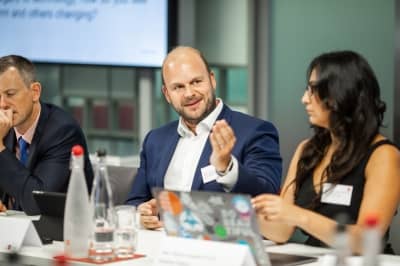The Big Four and the CMA study: breaking up is going to be hard to do
Updated 22nd November 2018 | 3 min read Published 22nd November 2018
There are more developments as the Competition & Markets Authority (CMA) continues its probe, with the spotlight on the Big Four.
KPMG recently announced it is stopping non-audit services for larger clients. A big bold move in my opinion. At the end of last week, The Big Four have also unanimously rejected the possibility of being broken up and are expressing a range of opinions on market share caps and non-audit service restrictions. The full list of responses can be found here.

So, what does all this mean for accountancy firms planning this type of additional advisory-based services?
Firstly, the KPMG news is sending a clear message that it will focus on the FTSE 350 for audit. The firm wants to provide more detail for audits, resulting in greater transparency. That’s good news for all of us.
It also used a term not generally found in industry: ‘Graduated Findings’. I believe this has been created to highlight how it will provide a granular level of detail rather than a ‘fair view’. This will be possible but only by using artificial intelligence (AI). The technology uses a hybrid of machine learning and AI techniques, combined with conventional tests to uncover errors and anomalous patterns of activities across the full financial dataset and associates a risk score to each transaction. Without doubt, ‘graduated findings’ will result in greater insights and higher assurance – it’s the beauty of AI combined with human insight.
KPMG – and now Deloitte - are setting out their leadership stalls: if they take the lead, it’s easily possible for the rest to fall in line and follow. It’s well publicised that audit services provide greater value; In December 2017, KPMG UK posted a ten per cent growth in audit performance. So non-audit services seem to be a drop in the ocean. The next question is whether others will follow suit?
It is a bold move to drop this amount of revenue; reading between the lines, the firm must be incredibly sure it can ‘easily’ replace the revenues. The additional work required for a ‘graduated findings’ report will drive audit services revenues. In my opinion, this makes KPMG into a super-specialist.
This is a strategic move. KPMG audits will be trusted more than the others and although this has not been publicly leaked, it doesn’t take much to see that the audit market is where the money is. As the CMA study plays out, it will be interesting to see if KPMG comes under fire and how the others react.
Trust is the key word with audits. If KPMG leads the market in this area, its audits will be more trusted. Large enterprises will want to use them to ensure they have absolute transparency, especially if scrutiny is increasing. But isn’t that why they use AI? Of course, there is a need to build rules – but then software such as IRIS AI already does this.
As the power-play continues, we shall see who the best of the best will be. Across the industry, I believe audit standards will be speeded up or the audit committee standards will be reviewed.
We also need to add Brexit. As we progress, there will be different rules across the UK and Europe. The confidence that KPMG has shown in the UK market highlights that whatever happens from a border perspective, audit is here to stay.
So, while the Big Four submit their responses and the CMA study continues, there is a quieter AI revolution in the accountancy sector. Mid-sized practices are seeing the benefits of AI. They can compete on audit. They are transforming their practices and evolving to provide more lucrative value-added services. With technology evolution comes a revolution. And with revolution come opportunity. The opportunity for every practice to thrive in the digital economy.
